0
Shares
Nature provides us with amazing healing secrets that are very essential for us to be aware of. Kairali Ayurvedic Group in this regard has been one of the pioneers in delivering the true spirit and essence of Ayurveda across the globe. Established in the year 1908, Kairali has given birth to various divisions of wellness that caters to different fields of business. Its hospitality and consultancy service, products division, treatment centres and its training institute, all cater to proliferate the brand name that spells authentic Ayurvedic services. National Geographic Traveler, recognizing the effort of Kairali, has scripted down the outstanding services that it delivers. Let us look into the article for a better understanding of what Kairali is all about:
“WELLNESS RETREAT: THE ART OF ANCIENT HEALING
I wake up at the crack of dawn and grabbing my yoga mat, head to the tennis court-turned-yoga podium. Several people have already assembled and are following the yoga teacher’s movements. With morning lethargy seeped deep into my being, I join in- reluctantly at first, but slowly surrendering to the serene setting. We’re facing east, so the rising sun warms our faces and the birdsong fills the air. Soon, I am doing the Bhujangasana like a pro.
An hour later, fully awake and with a post-workout high, I feel fresher than ever. Most of the feeling is attributed to where I am this morning- amidst lofty coconut trees and nature brimming with exuberance, I have switched off my mobile data and begun to slow down. A quick shower later, I am ready to start my day at Kairali, the Ayurvedic Healing Village. Tucked away amid the winding lanes of the sleepy town of Palakkad in Kerala, Kairali, at first glance, comes across as a striking luxury resort. However, it is not just a retreat but a recognised healing centre and hospital. While some guests are here for serious treatments like pain management, digestive disorders, and skin diseases, other indulge in general rejuvenation therapies and wellness programmes.
Patients come here from around the globe. Kairali is sought after for treatments of arthritis, skin diseases, stress-related illnesses among other things and every person who comes here is prescribed a certain diet and medication by the in-house doctors.
Spread over its 60-acre area are cottages designed according to Vastu Shastra and keeping in mind astrological components, which means that your cottage will match your birth star- it is believed to restore an individual’s curative powers. Inside every room, a Valampuri conch is strategically placed to induce positive vibrations. Acupuncture slippers, yoga mats, and little jars full of Ayurvedic toiletries, including dental powder, shampoo and body wash from Kairali’s own cosmetic shop, grace the bathroom shelves. Outside, the private porch is ideal to curl up with a book and take in the sights and sounds of the lush grounds, the streams that run through the property and melodious chirping.
Meals at Kairali are served in the dining hall located at the centre of the property, next door to the library. Most of the produce for all their meals comes from a farm, just a 10-minute walk away. I meet Gita Ramesh, Managing Director of the Kairali Group for breakfast at this adjoining farm, “We are the only ones in the Ayurvedic healing industry who have a hospital licence,” she tells me over an elaborate spread of freshly cut guavas and pomegranate, jugs of fresh papaya and watermelon juice, the Kerala breakfast staple of puttukadala, idiyappam with avial, a mix vegetable preparation, and coconut water to wash it all down.
We grow all our fruits and vegetables here and try not to source anything from the markets. Currently, we have 42 kinds of fruits. There are also vegetables like pumpkins, spinach and a variety of gourds, along with spices and herbs. We’ve just started keeping bees too,” she adds while handing me The Ayurvedic Cookbook, a book she has authored.
Mrs. Ramesh went on to explain that the farm-to-table approach that Kairali adopts is not justrecent culinary fad, but an almost 5,000-year-old Ayurvedic concept that stresses on consuming freshly made food using fresh ingredients. Refrigeration, unfortunately, is a necessary evil and it takes away the nutritive value of the cooked or uncooked food that we eat today. “Following Ayurvedic routines like oiling your body, and exercising the body and mind, are very essential to keep the mind, body and soul in unison,” she emphasises. Hunger satiated, I take some time to learn about the food I was gorging on.
Every dish is carefully prepared to complement the Ayurvedic treatments. While the use of spices-mostly cumin, turmeric and coriander- is understated, the flavours are enhanced by generous use of coconut in all forms along with freshly ground black pepper. The curries and vegetable preparations are served with fibre-and-magnesium-rich red rice, which is excellent for preventing migraines and osteporosis, and lowering blood pressure.
It may sound grim but that’s far from true. The simple food is delicious and the assortment, tempting. From the choice of soup-baby corn, spinach, or spring onion and dal-to the vegetable of the day- snake gourd curry, cauliflower bhajias, colocasia masala, brinjal curry, coconut-milk based mushroom mappas-there’s something new every day.
Unfortunately, the concept of evening tea or coffee doesn’t exist here but I find that during my stay, I have happily replaced my nicotine and caffeine addiction with a ritual of sitting back and sipping coconut water.
After a sumptuous lunch of pumpkin coriander soup, and mix veg thoran with chapattis and rice, I gear up for my appointment with the doctor. The cottages and green, open spaces of Kairali might be part of a hospital where hundreds flock to receive holistic treatment, but nothing looks or smells like hospitals usually do. In fact, my doctor’s appointment has me feeling quite kicked. I am meeting the chief physician and the most senior doctor here, 80-year-old T.R. Chandrasekharan, who is respected and loved by all and sundry. He checks my pulse and analyses my prakruti or the physical and mental constitution of a person, and recommends a few dietary supplements. Meanwhile, my masseuse, Rekha, is waiting for me to begin her glorious hot oil Abhyangam. A resident of Palakkad, she has been with Kairali for seven years and within the first few minutes of meeting her I feel like I am in the hands of an expert. She has with her an assistant and it is only when they begin the massage that I realise the need of a secondary masseuse. For the uninitiated, Abhyangam is a hot oil (medicated with herbs) synchronised massage, which means both Rekha and her assistant’s hand movements are synchronised on my body. Up and down, round and round, up and down again. This is done to ensure that each body part gets evenly massaged and the blood circulation remains uniform. The massage is followed by a steam bath in wooden cabins and a shower with uptan (a concontion of curd, ground lentils and turmeric used as body wash) and herbal shampoo.
The massages last for about an hour (including steam bath and shower) and usually take place during mid-mornings. And relaxing is an understatement. It feels as if every nerve in my body has been touched and made alive, such is the effect. The lunch that follows a massage is normal-dal, rice, vegetables, curries-unless you’re here for treatment. Evenings are generally free except for the one-hour meditation class.
The languid pace of the day is a welcome change from the frenetic life where breakfast often becomes an evening (fried) snack, and midnight cravings end the cycle. Not here, though. It’s hard to notice the changes in one day but as the stay progresses, I find myself less attached to my phone. Email notifications are on hold and Instagram stories no longer matter. The silence is welcome and so is the buzzing of crickets. My daily post-lunch siesta on the hammock surrounded by coconut groves makes me realise the importance of slowing down. For a change, I don’t want to do anything-read, talk, browse, or even think. I want to unwind by simply being in the moment.”


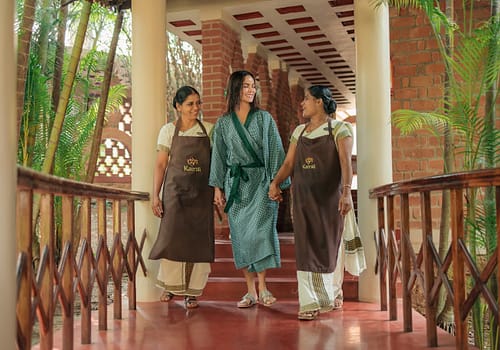
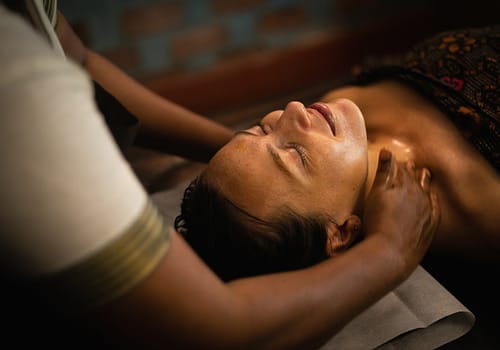
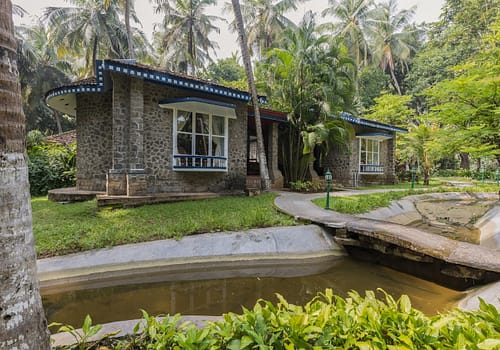
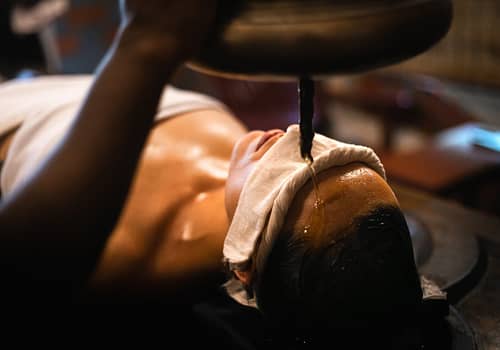
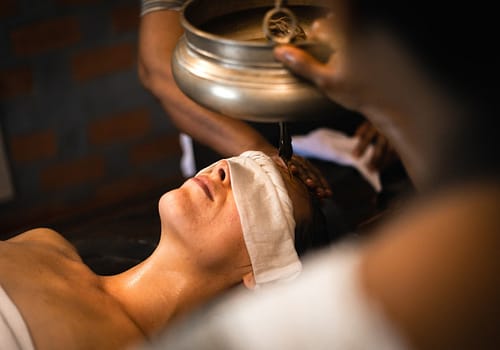
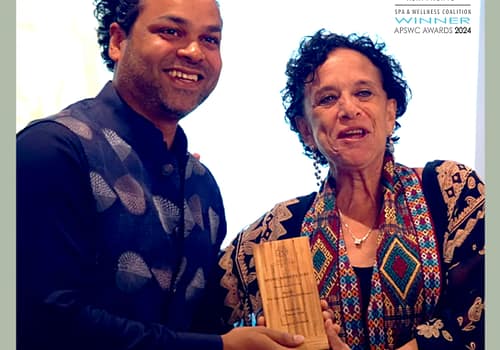






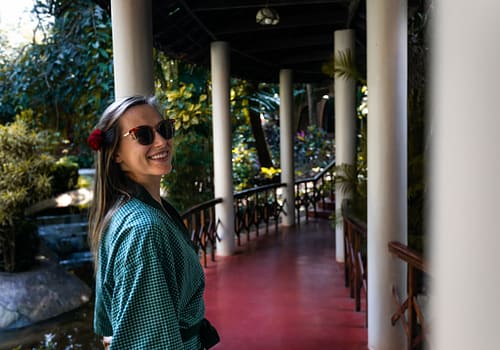
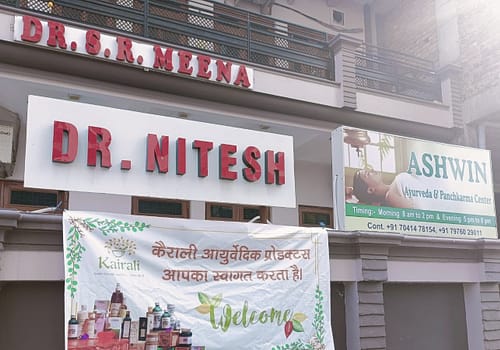
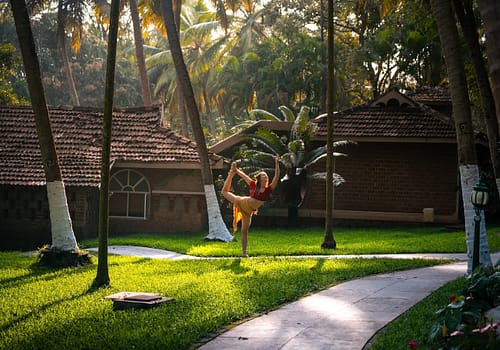














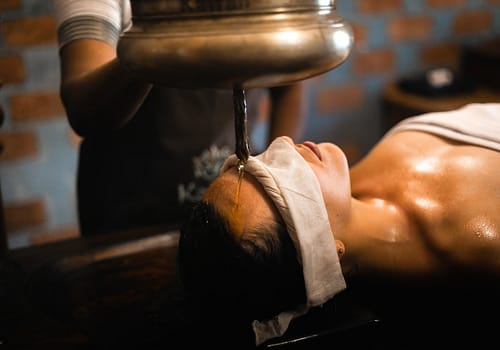

















Leave a Reply